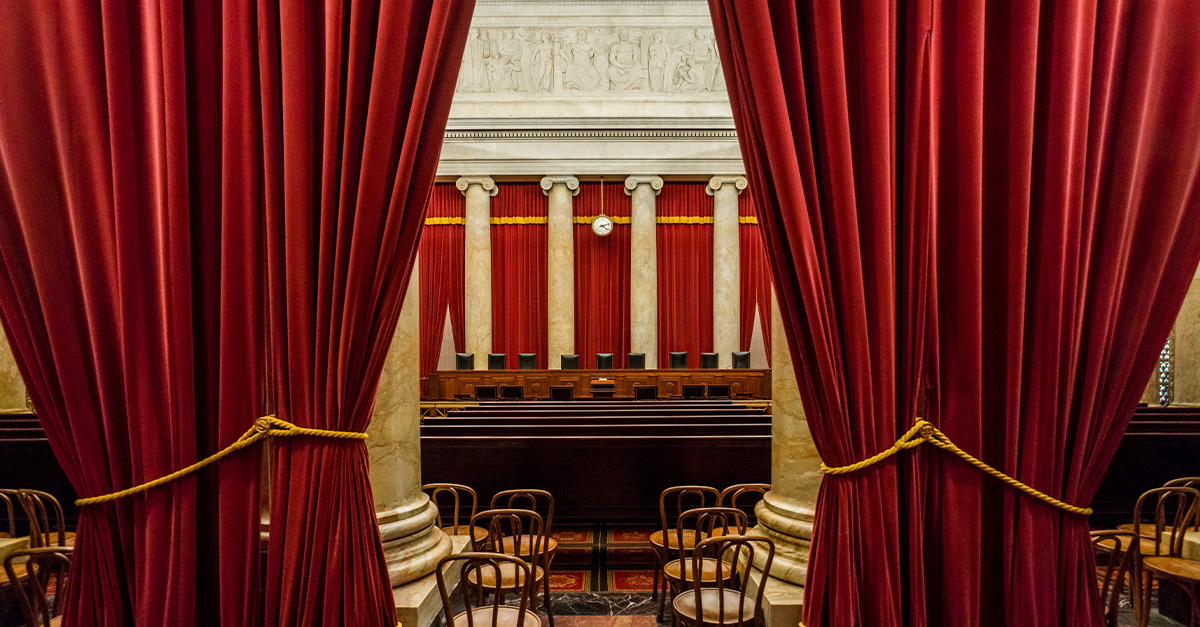


Get a free copy of Parental Rights & Education when you subscribe to our newsletter!

A federal judge ruled last week that the state of Maryland may not exclude a religious school from its tuition voucher program for low-income students based on the school’s beliefs about marriage and sexual orientation.
Bethel Christian Academy was a participant in Maryland’s Broadening Options and Opportunities for Students Today (BOOST) voucher program, which financially assists lower income students in attending private schools — or at least it was until the state took issue with the school’s views on marriage and sexuality. The state was concerned with one particular statement in the school’s handbook that said,
“It should be noted, however, that Bethel Christian Academy supports the biblical view of marriage defined as a covenant between one man and one woman, and that God immutably bestows gender upon each person at birth as male or female to reflect his image. (Gen. 1:27, Gen. 2:23-24). Therefore, faculty, staff, and student conduct is expected to align with this view. Faculty, staff, and students are required to identify with, dress in accordance with, and use the facilities associated with their biological gender.”
Matthew Gallagher, chairman of an advisory board that oversees the vouchers, said, “A non-heterosexual student may reasonably view the policy as one that allows denial of admission or discipline or expulsion on the basis of his or her sexual orientation. Therefore, the Board concluded that this policy, on its face, was in conflict with the nondiscrimination clause contained in the … law.”
Bethel was not only removed from the voucher program but was ordered to return the $102,600 it had received from the program, which awards money to parents to use at the school of their choosing. Bethel applied to be admitted back into the program but was denied. Due to its removal from the program, at least nine students were forced to leave the school.
Bethel claimed that sexual orientation plays no role in a student’s admission to the school and that the school’s rules, which prohibit any form of sexual contact, including holding hands, is generally applied to all students.
U.S. District Court Judge Stephanie Gallagher ruled in favor of Bethel, saying the state discriminated against the school based on its speech, not on its conduct of actual discrimination. She wrote,
“For example, Bethel was not excluded from the BOOST program because it rejected any applicant on the basis of sexual orientation; or because it disciplined or expelled any student on that basis; or because it engaged in any other discriminatory conduct or behaved any differently than any other BOOST-participating school. Instead, Bethel was expelled from the program because it refused to change the admissions policy section of its handbook to reflect the views that the government wanted it to express.”
She added:
“But the Defendants have failed to put forth any evidence that Bethel’s policy has deterred a single prospective applicant from applying for admission at Bethel, let alone any evidence that Bethel has ever denied admission, expelled, or disciplined a student on the basis of sexual orientation. In the absence of any such evidence whatsoever, the Court cannot simply infer—from the text of Bethel’s admissions policy alone—that Bethel has discriminated against anyone or even that its policy has deterred anyone from applying.”
Maryland Delegate Maggie McIntosh, D, chair of the House Appropriations Committee, indicated that a ruling in favor of Bethel Christian Academy could jeopardize the voucher program altogether. “If they were to win and it opened up the door to discrimination, I think you would find a strong movement in the legislature to end BOOST. We are just not going to use tax dollars to discriminate against anyone,” she said.
Garrett J. O’Day, deputy director of the Maryland Catholic Conference, responded by noting, “To take the program away would hurt thousands of low-income and minority students and in doing so threaten the stability of these community anchors.”

There is a movement afoot to compel religious organizations to speak, act, and believe in ways that the government says it must. In this case, the state of Maryland was attempting to force a religious school to adopt speech that violated its religious beliefs.
If Maryland moves to remove the voucher system because a school holds religious convictions and also is allowed to receive voucher funding, it will not only harm lower-income students and deliver a victory to public school teachers’ unions, but it will also show these legislators to be bigots in their own right.
Despite the assertion of the government, public schools are not neutral if they teach a certain viewpoint on morality, sexual orientation, philosophy, religion, or theory of origin without teaching all viewpoints. If a school endorses the government’s view on marriage, it discriminates against religious viewpoints that disagree. If it teaches secular humanism and a purely naturalistic origin of life, without teaching theism, then it discriminates against all theistic views.
The solution is to allow parents to use their tax dollars to send their child to the school that aligns with their views rather than force them to send their child to a school that is laughably partisan while pretending to be neutral.
The judge ruled according to the First Amendment and the Constitution, and hopefully the Maryland legislature will respond by accepting the rightness of the decision — rather than seeking retribution to the detriment of poor and minority children.
Christian conservative news and issues that matter. Curated just for you!
